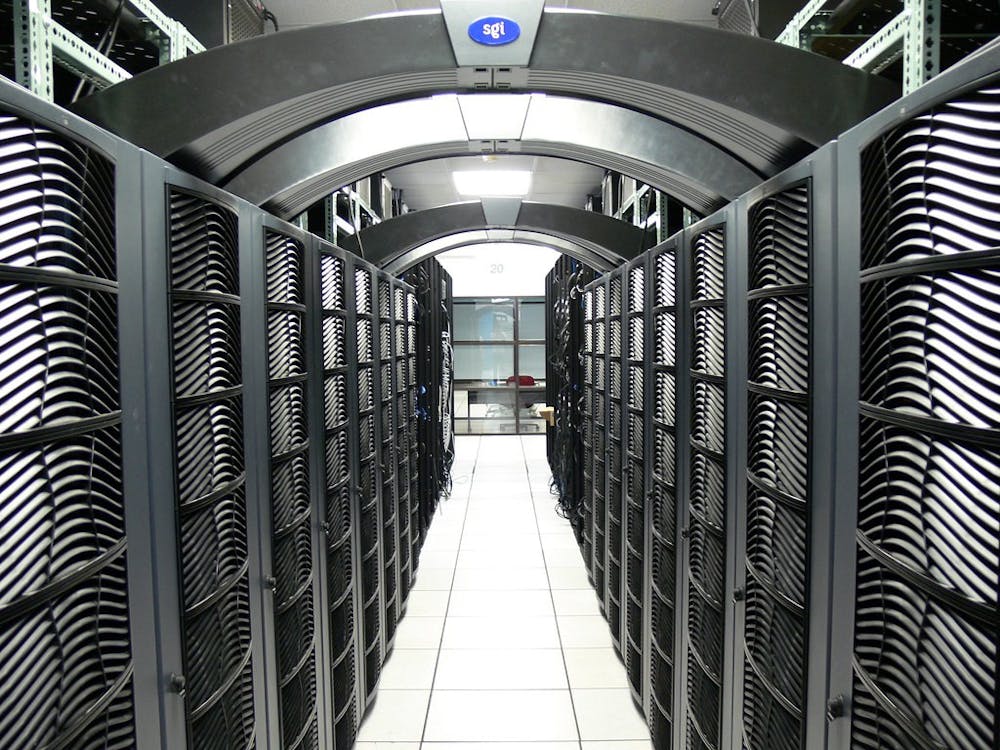In the race to build the biggest and baddest AI data centers, everyday Americans are being left behind. Predominantly Black and low-income communities have taken the biggest hit, especially in cities like Memphis, where the xAI Memphis Supercluster went online just last year. Now Maryland residents are facing a similar battle against plans to construct a data center at the former site of the Landover Mall in Prince George's County.
So what does Memphis have to do with Maryland residents?
In September 2024, xAI's Colossus Supercomputer went online in South Memphis, Tenn. Since then, according to the Southern Environmental Law Center (SELC), the site has been operating “dozens of unpermitted methane gas turbines without public notice, permits, or air pollution controls.” Memphis residents, especially those close to the center, complained of worsened air quality and exacerbated health problems. Environmental groups have claimed that xAI is already one of Shelby County's biggest producers of nitrogen oxides, gases known for causing smog. The fight for justice is still ongoing as other companies like Google announce their own projects in Memphis.
The important thing to note about Memphis is the fact that it — like Prince George's County — has a predominantly Black population. As of 2020 census data, about 63% of residents in Memphis and in Prince George’s County identify as Black or African American. Mario DeSean Booker at Purdue University Global calls this “digital redlining,” where “companies consistently dump pollution on Black and Brown neighborhoods while building cleaner facilities in white communities.” The study draws on fellow researcher Robert Bullard’s work identifying the “path of least resistance,” in which “corporations deliberately [seek] locations where communities lack political power to mount effective opposition.” It is no wonder, then, why these environmental and health concerns are going ignored: This is a glaring example of environmental racism, where Black communities bear the brunt of industrial pollution and community disruption.
Black Americans die from the effects of air pollution more often than any other population in the U.S. According to Nina Bai from Stanford Medicine, “they face a double jeopardy: more exposure to polluted air along with more susceptibility to its adverse health effects because of societal disadvantages.” The study looked specifically at fine particulate matter, or PM2.5, because of its known impact on human health. It found that in 96.6% of counties, Black Americans suffered the highest rates of mortality from health complications caused by inhaling fine particulate matter. This surely is not the only case where pollution disproportionately impacts predominantly non-white communities.
Of course, it isn't just the residents of Landover and Prince George's County who will suffer. Data centers, besides just producing pollutants, also consume massive amounts of energy and water. The proposed Landover center, the Brightseat Tech Park, could use up to 820 megawatts of power. Further, Maryland is already home to 44 data centers, which have led electric bills for residential buildings to skyrocket. Even those who have never used generative AI are paying the price for its strains on electric grids across the country. As more data centers are added, the strain will only worsen, and prices will continue to increase for people across Maryland and the entire U.S.
Data centers also aggravate water scarcity problems. This is particularly true in Northern Virginia, the “data center capital of the world.” Virginia experienced an extended period of drought in 2024 into 2025 that forced some areas to follow mandatory water use restrictions. Unsurprisingly, the area that experienced the worst effects, including most of Loudoun County, relies on the same watershed as many of these data centers. There is only so much clean water to go around, and data centers are consuming more and more of it every year. Climate change is already contributing to longer and more severe droughts across the country without the additional burden of data centers.
The good news is that we still have time to prevent construction of the Landover data center altogether. A Change.org petition against the data center has garnered over 20,000 signatures. A Qualified Data Center Task Force meeting was faced with hundreds of protesters on Sept. 10, leading lawmakers in Prince George's County to pause all data center development. They are awaiting a report from the data center task force in November before reevaluating. While this is a step in the right direction, there is no guarantee that operations won't be allowed to continue.
In the meantime, we can (and should) keep advocating to protect our cities and our communities. Environmental groups like Nature Forward and the SELC are crucial, but involvement doesn’t stop there. Other projects for massive data centers exist across the state, such as in Frederick County and Montgomery County. In the wake of legislation like the 2024 Critical Infrastructure Streamlining Act that favors data center development, Maryland is likely to experience a continuous expansion of centers throughout the state. The fight did not end with Memphis, and we cannot let it end with Landover either.
Abigail McKenna is a freshman from Clarksville, Tenn. studying English and Philosophy.





